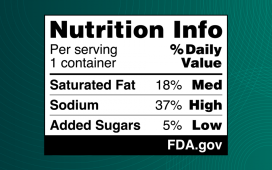Nine statements developed, including performing four or more versus three or fewer needle passes in suspected malignant disease
By Elana Gotkine HealthDay Reporter
TUESDAY, Oct. 15, 2024 (HealthDay News) — In a new clinical guideline issued by the American College of Chest Physicians and published online Sept. 27 in CHEST, recommendations are presented for endobronchial ultrasound-guided transbronchial needle aspiration (EBUS-TBNA) specimen processing and handling.
Noting that EBUS-TBNA has become the standard for initial lung cancer diagnosis and staging, Christopher R. Gilbert, D.O., from the Medical University of South Carolina in Charleston, and colleagues examined the available literature on specimen processing and handling. Key clinical questions were developed using the population, intervention, comparator, and outcome format, addressing specific questions.
The authors developed nine evidence-based statements relating to handling and processing EBUS-TBNA specimens, eight of which were conditional recommendations. Standard clinical practice (stylet, air) or alternative methods (needle rinse) are suggested for specimen sample expulsion in patients undergoing EBUS-TBNA. Use of either alternative collection media (formalin, Roswell Park Memorial Institute Media, saline, phosphate buffered saline) or current clinical practice (standard alcohol-based preparations) is suggested for patients with suspected malignant disease undergoing EBUS-TBNA. Use of rapid onsite evaluation is suggested over usual care in patients with suspected malignant disease undergoing EBUS-TBNA. A smaller needle is suggested over a large needle (21 or 22 versus 19 gauge) in patients with suspected malignant disease undergoing EBUS-TBNA. Four or more needle passes are recommended over three or fewer in patients with suspected malignant disease undergoing EBUS-TBNA (strong recommendation).
“Sample collection varies widely between institutions,” Gilbert said in a statement. “This guideline seeks to leverage learned experiences of both pulmonologists and pathologists to standardize the process.”
Copyright © 2024 HealthDay. All rights reserved.








